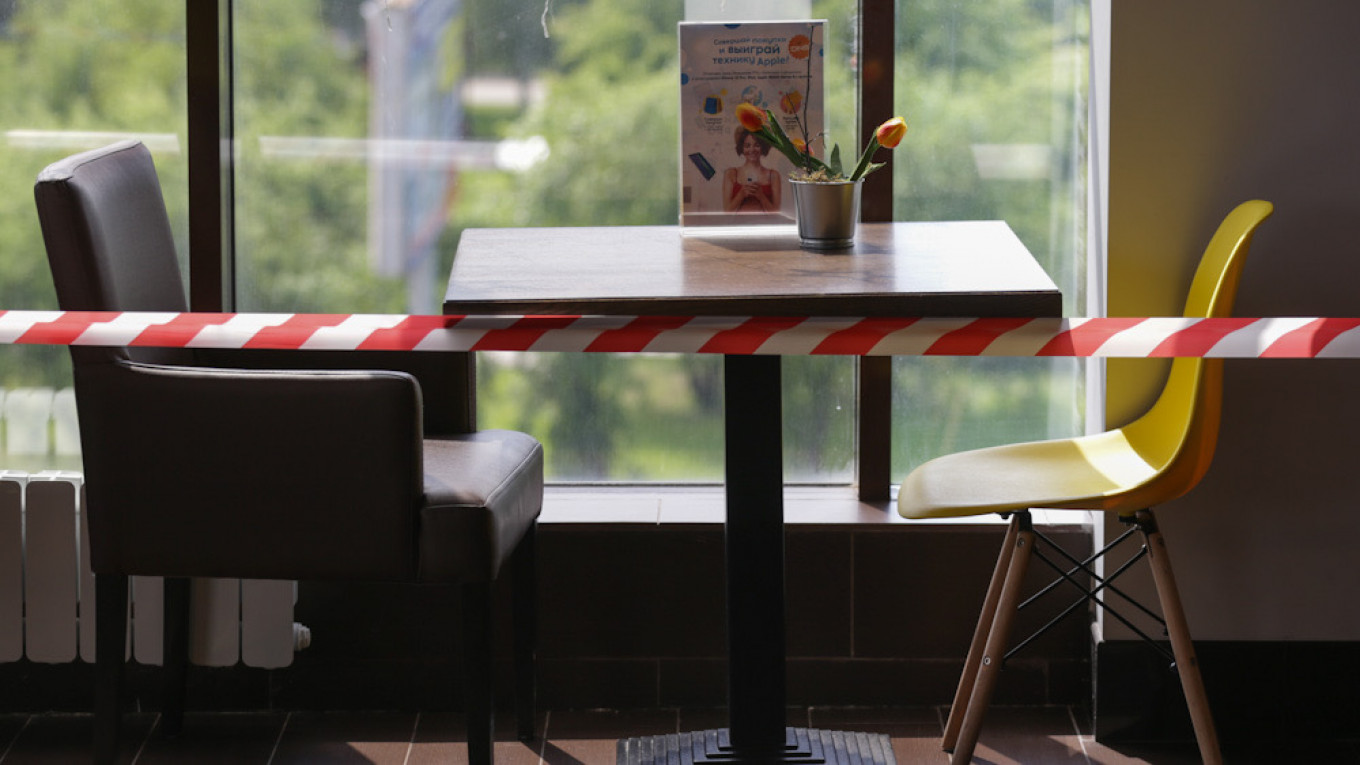At least 17 Russian regions have reintroduced coronavirus restrictions in recent weeks as the country grapples with the rise of the highly infectious Delta variant.
Russia’s regions have largely followed suit from Moscow, the epicenter of the pandemic in Russia and where officials say the Delta variant accounts for nearly 90% of new cases.
Many of the new restrictions are also aimed at accelerating vaccination rates, which have sputtered out due to widespread public skepticism of Russian-made vaccines.
Here’s a look at where things stand:
Cafes and restaurants
Moscow is currently testing a few dozen so-called “Covid-free” restaurants where all restaurant staff and customers are vaccinated against the virus. Customers will have to present a QR code confirming their double-dose vaccination status which can be downloaded from the online government portal.
From June 28, all Moscow cafes and restaurants will only serve customers who have been vaccinated; who have had Covid-19 in the past six months or who present a negative Covid-19 test taken within the past 78 hours.
Entertainment venues
Moscow has banned all mass events with attendance over 1,000 people until June 29.
Restaurants, cafes, bars, nightclubs, karaoke, bowling, discos and other entertainment venues are ordered to close between 11:00 p.m. and 6:00 a.m.
Children’s playrooms and food courts in shopping malls remain closed and food will only be available for takeout or delivery.
Cinemas and theaters are required to limit their audience sizes to half-capacity. Amusement parks, playgrounds and sports fields are closed to the public.
Hospitals
Moscow hospitals will no longer accept unvaccinated patients for routine, non-emergency treatment. The restrictions do not apply to treatments for cancer or blood disorders and patients with a medical exemption from vaccination will still be treated.
Compulsory vaccination
Moscow has ordered compulsory vaccination for 60% of service workers. The decree defines service workers as anyone working in retail, beauty salons, fitness clubs, drycleaning, food and catering service, post offices, banks, education, health, social services and cultural institutions.
Remote work
Businesses are recommended to switch at least 30% of their unvaccinated employees to remote work.
Revaccination and vaccination of migrants
Muscovites who got vaccinated six months ago or have a lowered antibody count are advised to sign up for revaccination with the first component of the vaccine they used the first time.
Migrants working and living in Moscow will be able to receive the one-dose Sputnik Light vaccine starting in July.
Masks and gloves
Russians in all regions are still required to wear masks and gloves in stores, public transport and other public spaces.
Free testing and drugs
Covid-19 patients who recover from the illness at home will be able to receive two new antiviral drugs, Areplivir and Coronavir, at no cost. Patients with a moderate course of the disease will be prescribed drugs that prevent the formation of blood clots to help reduce the risk of complications.
Patients diagnosed with pneumonia will receive pulse oximeters to assess blood oxygen saturation. These devices will be issued with a doctor's prescription. Rapid tests for Covid-19 as well as antibody tests are available at no cost to Moscow residents with compulsory health insurance.
What are other regions doing?
The mayor of the southern city of Krasnodar went as far as to say that he will withhold bonuses and salaries from unvaccinated city administration employees if they get sick with Covid-19.
St. Petersburg, Russia’s second-largest city and the host of seven Euro 2020 football games, has strengthened its restrictions on fan zones and stadiums, with attendance limited to 50% capacity, down from 75%. The city has also banned visits to aquaparks, amusement parks and museum exhibitions from June 21 as it deals with an uptick in new infections.
The Leningrad region that surrounds St. Petersburg has ordered 80% of service workers to get vaccinated.
Authorities in annexed Crimea, a popular tourism destination for Russians, have advised tourism, dining and public transport enterprises to vaccinate 100% of their workers.
From July 1, the republic of Buryatia in Siberia will close public parks, city squares and public areas, swimming pools, massage parlors, beauty salons, fitness centers, indoor and outdoor sports venues.
A Message from The Moscow Times:
Dear readers,
We are facing unprecedented challenges. Russia's Prosecutor General's Office has designated The Moscow Times as an "undesirable" organization, criminalizing our work and putting our staff at risk of prosecution. This follows our earlier unjust labeling as a "foreign agent."
These actions are direct attempts to silence independent journalism in Russia. The authorities claim our work "discredits the decisions of the Russian leadership." We see things differently: we strive to provide accurate, unbiased reporting on Russia.
We, the journalists of The Moscow Times, refuse to be silenced. But to continue our work, we need your help.
Your support, no matter how small, makes a world of difference. If you can, please support us monthly starting from just $2. It's quick to set up, and every contribution makes a significant impact.
By supporting The Moscow Times, you're defending open, independent journalism in the face of repression. Thank you for standing with us.
Remind me later.






